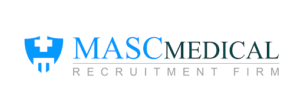Physician Recruiters Recommend Job-force Planning for the Technological Age

Technology and innovation are rapidly changing the healthcare industry, and physician recruiters report that it will significantly affect staffing needs in the future. While automation and the use of telemedicine are already changing the staffing landscape, the use of artificial intelligence (AI) and related technology will create a demand for workers with specialized skills. Physician recruiters increasingly focus on finding healthcare workers with expertise in information technology and data analytics. Healthcare workers with knowledge in genomics, precision medicine and personalized medicine will also be in high demand.
According to an article published in the New England Journal of Medicine, reorganizing workforce planning will require healthcare organizations to identify the skills and competencies that will be needed in the future and provide support for training and development. Healthcare providers will get the best results through collaboration with educators, healthcare staffing agencies and policymakers.
Defining and Creating New Roles

Physician recruiters recommend that providers reevaluate staffing needs in a way that reflects the rapidly changing nature of healthcare. As AI and other advanced technologies continue to reshape the industry, healthcare organizations must take proactive steps to prepare for those changes. This includes planning for and defining new roles that reflect the rising use of these technologies.
Applying technology
Healthcare organizations can begin to develop a plan for incorporating AI into their operations by first identifying the areas where technology can be used. This includes careful evaluation of technology’s benefits in terms of patient care. Perhaps of critical importance, using technology, and AI in particular, promises to reduce the administrative tasks that currently take healthcare workers away from patients and contribute to burnout.
Don’t know where to begin? Here are some helpful resources:
Healthcare IT News: Healthcare IT News is a publication that covers the latest trends and developments in healthcare technology, including AI. The publication features articles, webinars, and events that focus on the use of AI in healthcare, and it provides insights into best practices for implementing AI in healthcare organizations.
The Institute for Augmented Intelligence in Medicine: This Northwestern University organization brings together experts in AI and healthcare to develop new approaches and tools for improving patient outcomes and healthcare delivery. The center provides educational resources, including workshops and training programs, to help healthcare professionals learn how to effectively incorporate AI into their practice.
Evaluating skills
Once these areas are identified, providers can begin to evaluate the skills needed for each. This includes technical skills, such as programming, as well as soft skills, such as communication and critical thinking. As the use of technology in healthcare increases, workers will need to be able to analyze data and use it to make decisions about patient care. Workers will also need to be able to identify and solve problems that arise in complex systems. With a good picture of these new skill sets, medical recruitment companies can begin to identify appropriate candidates.
Creating job descriptions
Job descriptions will need some tweaking. New drafts should include the specific responsibilities of the role, as well as the required skills and qualifications. For example, a data analyst role may require experience with machine learning algorithms and a degree in statistics or computer science.
Nurturing Talent

Developing training programs
Though many new roles will require a high level of expertise, healthcare providers won’t need to replace valuable staff members. Instead, they should prepare current employees for transition by developing training programs. Healthcare staffing agencies recommend training in programming languages, data analysis techniques and high-level communication skills (as healthcare becomes more complex, workers will need to collaborate across disciplines and organizations to ensure effective care).
Need some help with training? Try these resources:
Coursera: Coursera, a non-profit platform for online classes and other continuing education, offers a variety of classes that can be useful in training efforts. In particular, you might start with Stanford’s “AI in Healthcare Specialization.”
Healthcare Information and Management Systems: HIMSS is a global organization that focuses on the use of information technology in healthcare. The organization provides a variety of resources related to the use of AI in healthcare, including white papers, webinars, and events. HIMSS offers a certification program for healthcare professionals who want to demonstrate their expertise in health informatics, which includes AI.
Providing ongoing support
By providing consistent support, healthcare organizations can help employees adapt to their new roles and continue to develop their skills. This can include mentoring programs, regular performance reviews and opportunities for continuing education. Organizations should also provide opportunities for career development and internal growth.
Reviewing and refining
Providers should monitor and evaluate the effectiveness of the new roles they’ve created. This can include tracking key performance metrics, such as patient outcomes and efficiency gains and soliciting feedback from employees. This enables healthcare providers to make adjustments as needed and ensure that they are achieving their goals.

The rising use of AI and other advanced technologies presents both challenges and opportunities for healthcare organizations. By planning for, creating and defining new roles, healthcare organizations can adapt to the changing landscape of healthcare and provide better patient care. All of this preparation will ensure that healthcare organizations will be ready to work with physician recruiters to identify candidates for the evolving future.